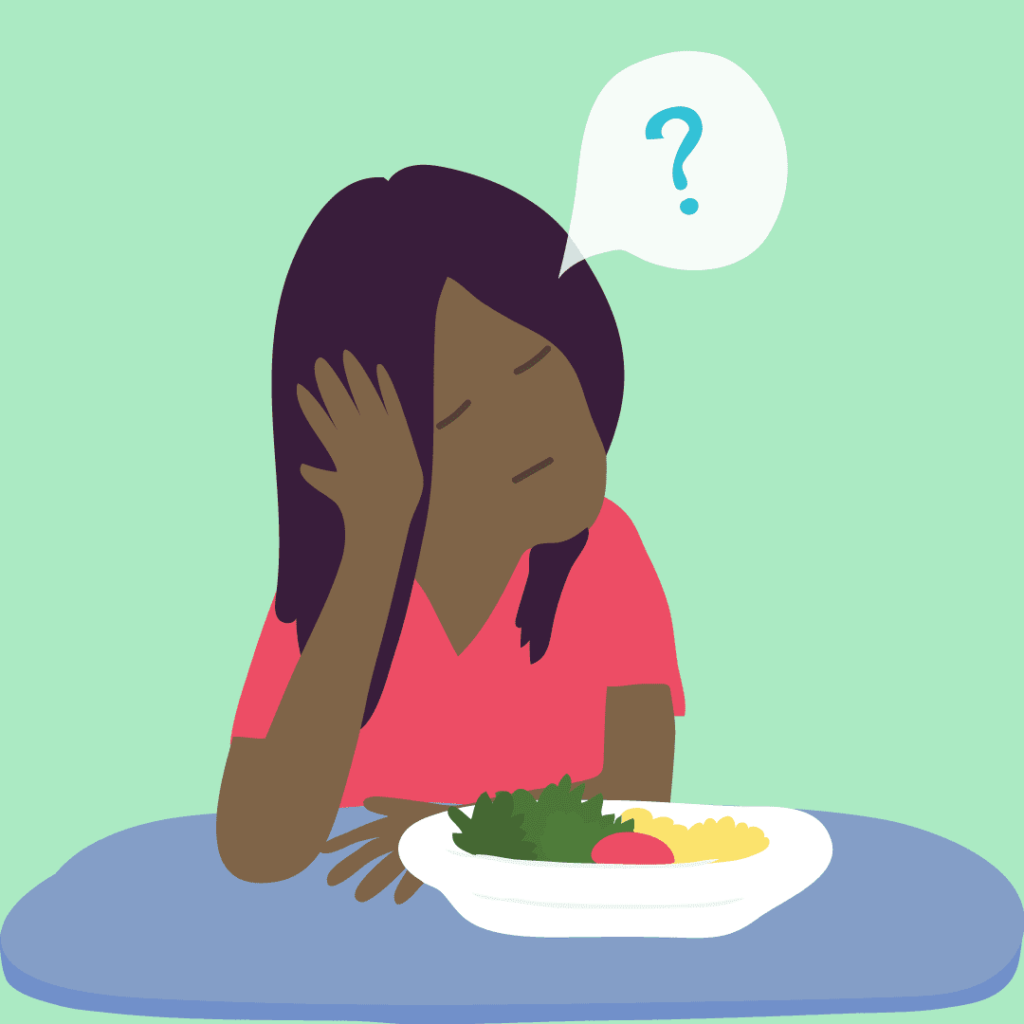Eating Disorders
Symptoms
Eating disorders are a group of related conditions that cause serious emotional and physical problems. Each condition involves extreme food and weight issues; however, each has unique symptoms that separate it from the others.
Anorexia Nervosa: People with anorexia will deny themselves food to the point of self-starvation as they obsess about weight loss. With anorexia, a person will deny hunger and refuse to eat, practice binge eating and purging behaviors or exercise to the point of exhaustion as they attempt to limit, eliminate or “burn” calories.
The emotional symptoms of anorexia include irritability, social withdrawal, lack of mood or emotion, not able to understand the seriousness of the situation, fear of eating in public and obsessions with food and exercise. Often food rituals are developed or whole categories of food are eliminated from the person’s diet, out of fear of being “fat”.
Anorexia can take a heavy physical toll. Very low food intake and inadequate nutrition causes a person to become very thin. The body is forced to slow down to conserve energy causing irregularities or loss of menstruation, constipation and abdominal pain, irregular heart rhythms, low blood pressure, dehydration and trouble sleeping. Some people with anorexia might also use binge eating and purge behaviors, while others only restrict eating.
Bulimia Nervosa: People living with bulimia will feel out of control when binging on very large amounts of food during short periods of time, and then desperately try to rid themselves of the extra calories using forced vomiting, abusing laxatives or excessive exercise. This becomes a repeating cycle that controls many aspects of the person’s life and has a very negative effect both emotionally and physically. People living with bulimia are usually normal weight or even a bit overweight.
The emotional symptoms of bulimia include low self-esteem overly linked to body image, feelings of being out of control, feeling guilty or shameful about eating and withdrawal from friends and family.
Like anorexia, bulimia will inflict physical damage. The binging and purging can severely harm the parts of the body involved in eating and digesting food, teeth are damaged by frequent vomiting, and acid reflux is common. Excessive purging can cause dehydration that effect the body’s electrolytes and leads to cardiac arrhythmias, heart failure and even death.
Binge Eating Disorder (BED): A person with BED losses control over their eating and eats a very large amount of food in a short period of time. They may also eat large amounts of food even when he isn’t hungry or after he is uncomfortably full. This causes them to feel embarrassed, disgusted, depressed or guilty about their behavior. A person with BED, after an episode of binge eating, does not attempt to purge or exercise excessively like someone living with anorexia or bulimia would. A person with binge eating disorder may be normal weight, overweight or obese.
Causes
Eating disorders are very complex conditions, and scientists are still learning about the causes. Although eating disorders all have food and weight issues in common, most experts now believe that eating disorders are caused by people attempting to cope with overwhelming feelings and painful emotions by controlling food. Unfortunately, this will eventually damage a person’s physical and emotional health, self-esteem and sense of control.
Factors that may be involved in developing an eating disorder include:
- People with first degree relatives, siblings or parents, with an eating disorder appear to be more at risk of developing an eating disorder, too. This suggests a genetic link. Evidence that the brain chemical, serotonin, is involved also points a contributing genetic and biological factors.
- Cultural pressures that idealize a particular body type place undue pressure on people to achieve unrealistic standards. Popular culture and media images often tie thinness (for women) or muscularity (for men) to popularity, success, beauty and happiness.
- Peer Pressure: With young people, this can be a very powerful force. Pressure can appear in the form of teasing, bullying or ridicule because of size or weight. A history of physical or sexual abuse can also contribute to some people developing an eating disorder.
- Emotional Health: Perfectionism, impulsive behavior and difficult relationships can all contribute to lowering a person’s self-esteem and make them vulnerable to developing eating disorders.
Eating disorders affect all types of people. However there are certain risk factors that put some people at greater risk for developing an eating disorder.
- Eating disorders are much more common during teens and early 20s.
- Women and girls are more likely to have a diagnosed eating disorder. However, it is important to recognize that men and boys may be under-diagnosed due to differences in seeking treatment.
- Family history. Having a parent or sibling with an eating disorder increases the risk.
- Dieting taken too far can become an eating disorder.
- Times of change like going to college, starting a new job, or getting divorced may be a stressor towards developing an eating disorder.
- Vocations and activities. Eating disorders are especially common among gymnasts, runners, wrestlers and dancers.

